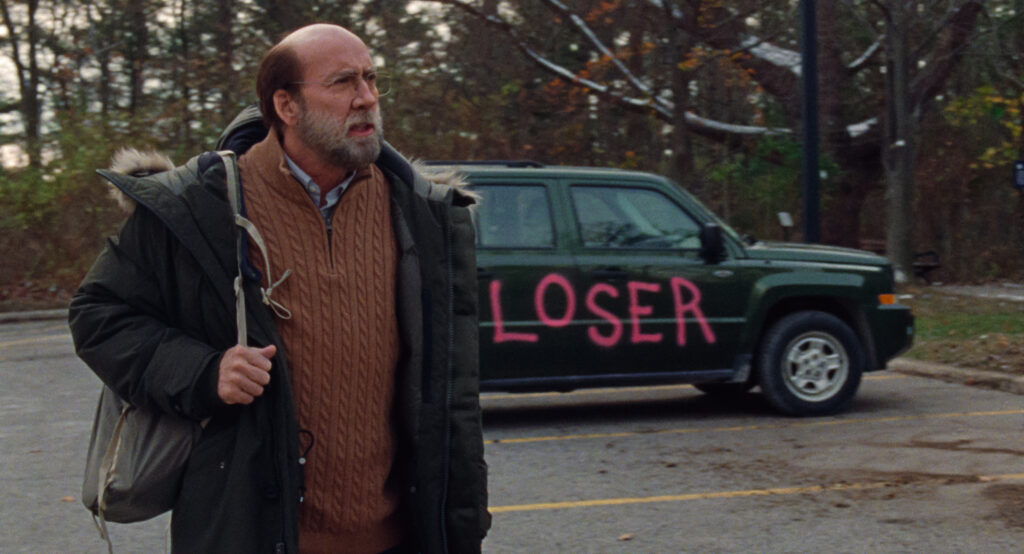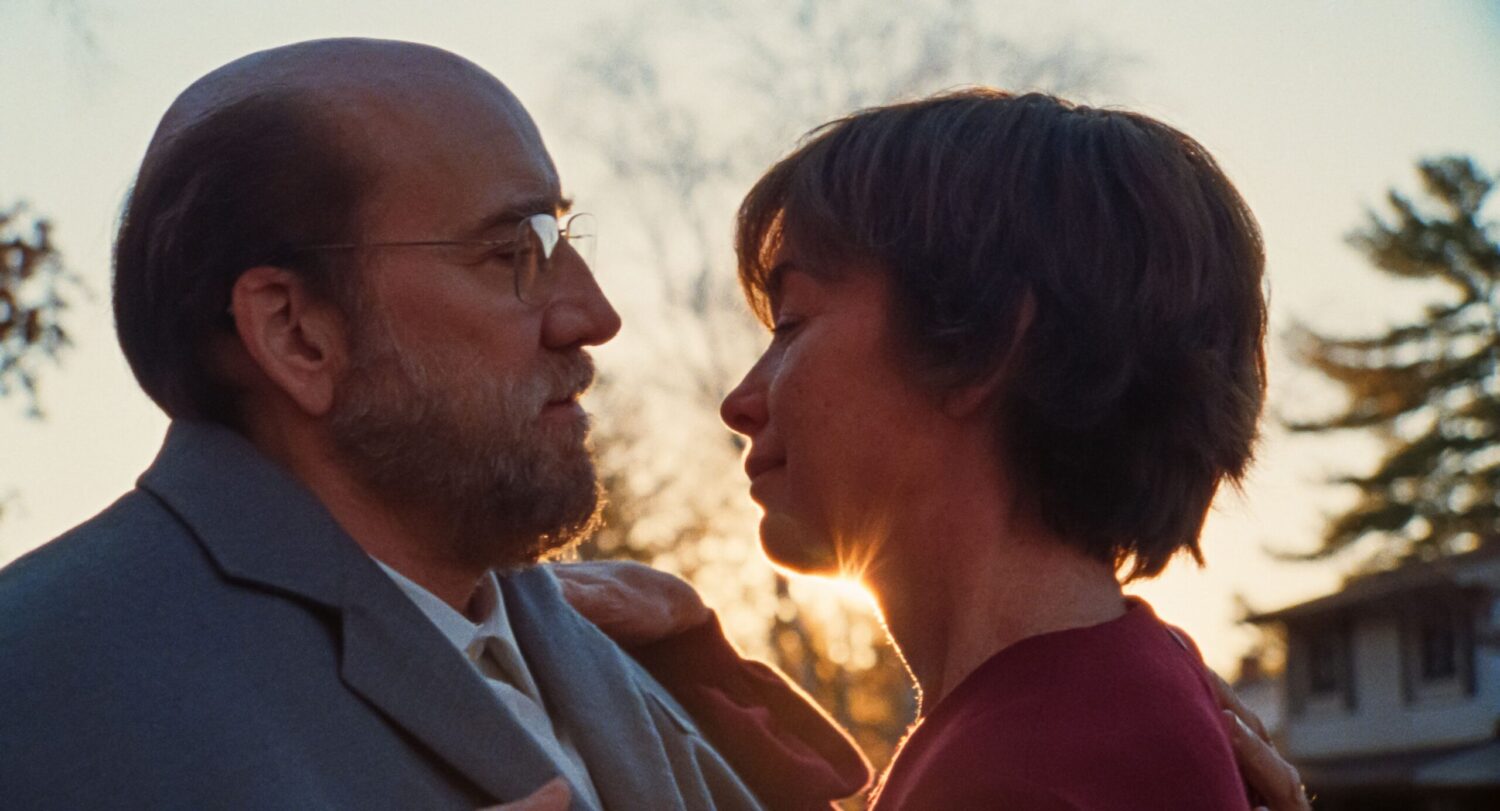Nicolas Cage continues his hot streak comeback—see also 2021’s Pig and 2022’s The Unbearable Weight of Massive Talent—with one of his very best performances in the surprising new sleeper (no pun intended) Dream Scenario, an inventive new picture about an everyman schlub who gets the chance, for one brief moment, to be exceptional.
Written and directed by the gifted Norwegian Kristoffer Borgli (Sick of Myself) and produced by Ari Aster’s Square Peg, Borgli’s ambitious comedy-drama-satire-fantasy-thriller takes on our fascination with making instant viral stars—the cynical packaging, meteoric rise to fame and too-short fifteen minutes—and drops this fleeting phenomenon at the feet of a disappointed everyman.
A proverbial dog who gets his day, Cage is Paul Matthews, a middle-aged, east coast college biology professor of no particular distinction, a passive failure and disappointment to himself, though his supportive wife (the terrific Julianne Nicholson) steadfastly believes his ship will one day come in.
Unlike his more motivated colleagues, Paul hasn’t published that long overdue, groundbreaking piece of research; ditto the decades overdue biology book he has procrastinated writing. A very funny, pointed early scene finds Paul having lunch with a former colleague (Paula Boudreau) he believes has stolen his research to great success; his inability to assert himself and quick reversion to hysterics tell us everything we need to know—his is a world of complacent mediocrity driven by low self esteem and fear. There is a sad streak to this also-ran existence, Paul pining to be on the guest list for a friends’s (deadpan by Dylan Baker) revered dinner parties, always remaining just on the outside.
Paul’s quiet desperation—day in and out drudgery of unmotivated lectures for less than engaged students—turns on a fantastical development straight out of Charlie Kaufman’s playbook as he inexplicably becomes part of what Jung coined our collective unconscious, which he discovers on a chance encounter with a decades past ex-girlfriend (Jennifer Wigmore) who informs him that she’s had the strangest dream in which he appeared but didn’t exactly play a critical role. This phenomenon quickly extends to the dreams of his family, students and then random global strangers. The common link, of course, is that the dreamer is facing a potentially dire fate and Paul unsurprisingly stands by inert, without intervention. It’s a funny joke, but one that takes a dark turn when a mentally ill stalker (and dreamer) breaks into the family home.

What happens next—Paul’s media coverage goes through the roof and he becomes an instantly famous cultural fixture—is terrific fun, and Cage, with his ability to turn pathos to comedy and back, has a ball with befuddled Paul’s newfound fame, which leads to an explosively funny scene with a New York PR firm led by an inspired Michael Cera, deciding to package him, of all things, with “Sprite” or their second idea, “Obama.” For his part, Paul simply wants to leverage his notoriety to finally get a publishing deal and is unprepared for such attentions, culminating in the riotous reenactment of a comely young admirer’s (a funny Dylan Gelula) sex dream, Paul clad in his hiking boots and parka, which he rarely removes across the film.
What goes up must come down and in the final act, Borgli’s tonally elastic picture takes a pitch-black turn, an indictment of the destructive power of fame. As Paul’s star rises then falls, the film explores the consequences of fame and the fragility of identity. Borgli adeptly maneuvers through tonal shifts, turning relatively benign collective dreams into terrifying nightmares, where Paul transforms from a mild-mannered figure to a violent aggressor. For his college students, even the sight of him is a trigger during a laugh-out-loud group “safe space” gathering. Once a symbol of collective unity, Paul now becomes a target.
Borgi’s rebuke of celebrity and a fickle culture that makes and breaks lives is clear; as is the notion that the allure of fame necessitates fragile, false identities that court disaster. Across this heady thematic material Cage is given full autonomy to deploy his gifted versatility—his Paul is at once disillusioned, emboldened by his reversal of fortune, pained by ruin and deeply, romantically emotional. The Oscar-winning actor, who effortlessly moves from A-list to B-grade pictures while investing each with full conviction, giving one of the year’s very best performances.
Special mention goes to the superb Nicholson, whose character’s romantic livelihood drifts during Paul’s stardom, the actress adeptly navigating both a workplace flirtation and professional turning of the tide.
Borgli’s work in Dream Scenario, reminiscent of the conceptual brilliance of Kaufman, Spike Jonze, and Michel Gondry, stands out as a culturally astute and imaginatively realized meta-work. It is a clever, playful and structurally daring film that ranks among the best of the year.
3 1/2 stars



